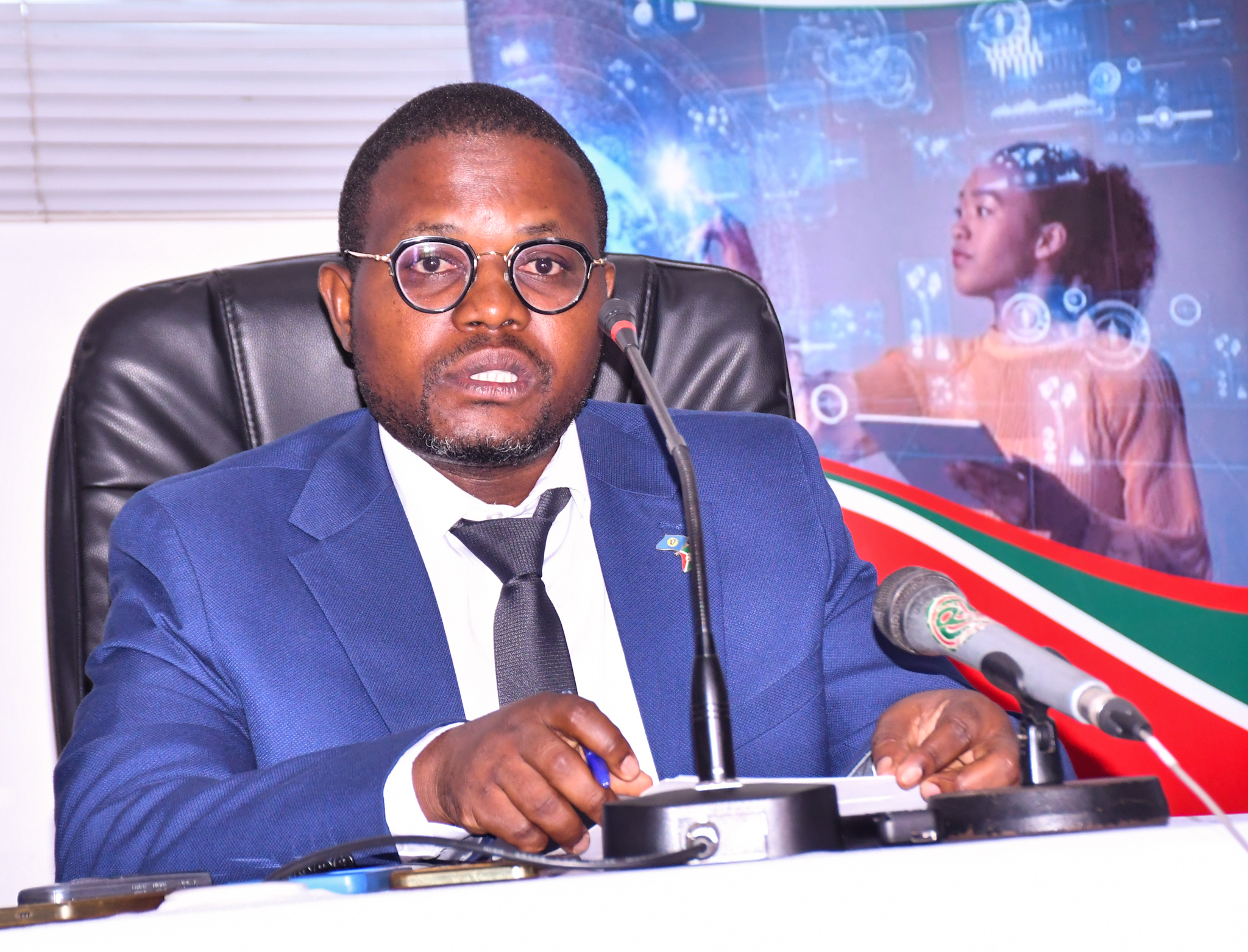BUJUMBURA, November 21st (ABP) – Under the aegis of the Ministry of Communication, Information Technology (ICT) and Media, the group called ‘Center for Study and Research in Population and Development (CERPED)’ of Burundi, in collaboration with the Tunisian company ‘SFM Technologies’, presented on Wednesday, November 20, 2024, in Bujumbura, the report of the national survey on access to and use of digital technology, which took place from April 29 to May 17, 2024 throughout the territory of Burundi.
In his speech, the permanent secretary of the ministry responsible for ICT, Ferdinand Manirakiza, indicated that the presentation aimed to share the results of this field survey, which was carried out by the CERPED-SFM Technologies group that won the contract. The survey in question was conducted among households, businesses, public administrations, not to mention the community groups of Burundi including tontines, youth centers, and centers for people with disabilities.
He added that it was a technical workshop to discover the results from the study that will help to better identify needs, as well as data, to measure progress in the different areas of digital technology. “This national survey conducted for the first time in Burundi, aims to determine the level of access and use of ICT services and products in the country, as well as users’ perceptions regarding the clarity and financial accessibility of digital services,” Manirakiza noted. According to him, the information collected will serve as a basis for better understanding the needs and directions actually desired by users for the promotion of e-administration, e-government, e-commerce, and to guide the development policies of the ICT sector towards users accordingly.

Manirakiza pointed out that the results of this survey will also, among other things, inform the design and targeting of digital access programmes. According to him, these results also aim to develop a new broadband policy, which sets out the basic principles for deepening sectoral reform favorable to competition; to support rural connectivity; to respect gender equality and the climate; as well as to develop a new digital inclusion policy.
“These results will thus make it possible to assess the state of ICT penetration in Burundian society. They will also allow the implementation of several activities and the goals of the vision Burundi, emerging country by 2040 and developed country in 2060, in particular the goal 8 which is related to the development of financial services and ICT, without forgetting also the goal 1 aimed at improving the institutional capacities of the State for the development of skills of administrative executives, the promotion of in-service training according to the needs of administrations, and the development of the use of new ICTs as well as the digitalization of public services,” he noted. As for the specific goals of the survey, Ferdinand Manirakiza said that the latter aimed to measure access to electronic communications terminals; to identify the needs and expectations of managers within organizations in relation to ICT products and services; to identify the perceived benefits; to identify the goals of access to ICT services; to assess the digital divide linked to gender, socio-economic category and geographical area, and finally, to measure the level of development of digitalization of the activities of both public and private organizations.
During the presentation of the survey report, the head of mission of the CERPED-SFM Technologies group which carried out this activity, Désiré Munezero, indicated that based on the results of the survey, a certain number of regulatory and technological priorities emerge. According to him, some of these priorities consist of improving digital infrastructure, reducing internet access costs, developing institutional and human capacities, strengthening the regulatory framework, as well as encouraging innovation and digital entrepreneurship.
Munezero specified that the data collection team was made up of 120 inquirers spread across 205 counties of the country.
Out of 4100 households, 820 community groups, 405 businesses and 405 public administrations surveyed, the inquirers found that 43% of the population own radios in urban areas compared to 28% in rural areas; 2% own landlines in urban areas only; 53% own simple mobile phones in rural areas; the urban environment exceeds 3 times the rural environment for the population owning smart phones, while the level of computer use does not even reach 1%.
Munezero deplored that the internet is poorly adopted by businesses in rural areas. He also deplored that people do not adhere to online payment for fear of being scammed.
He also revealed that the digital economy in Burundi is emerging, but that many challenges should be overcome. Among the challenges mentioned were the low internet connectivity in some regions, the lack of technical resources, as well as the need to strengthen digital skills to create an environment conducive to the development of ICTs, and to stimulate innovation and economic competitiveness.
The participants in the technical workshop thanked the CERPED-SFM Technologies group for the work it had done. However, they proposed improving the study by including some aspects like cyber-security and cybercrime. They took the opportunity to address the challenges faced by the population in terms of the consumption of services offered by mobile phones.
After the question-and-answer session and suggestions, the report of the survey on access to and use of digital technology was validated, on the condition of integrating the recommendations that were made to improve it and identifying poorly served areas.
It is worth noting that this survey was commissioned by the Digital Economy Foundations Support Project (PAFEN), with funding from the World Bank.

